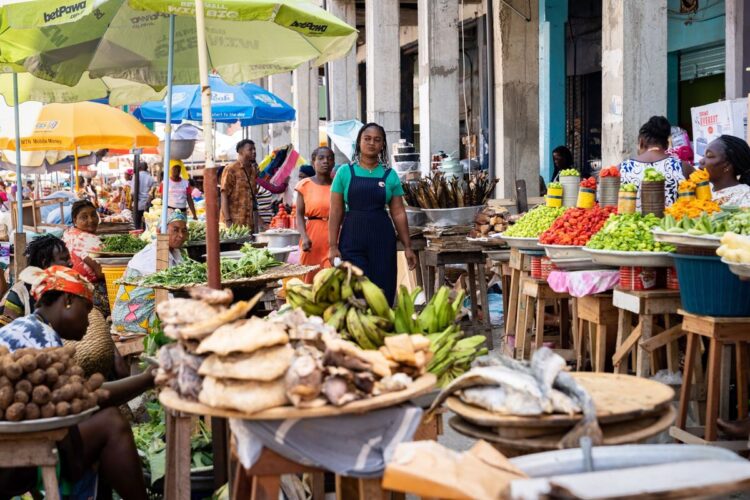Ghana’s inflation rate has increased to 21.5% for September 2024, up from 20.4% in August, reversing a five-month trend of declining inflation. This rise has been primarily attributed to a notable increase in food inflation, which surged to 22.1% from 19.1% the previous month. Month-on-month inflation also saw a significant increase, reaching 2.8% in September compared to a decline of -0.7% in August.
Professor Samuel Kobina Anim, the Government Statistician, stated at a press conference in Accra that the increase in food prices has significantly impacted the overall inflation rate. Food inflation jumped from -2.2% in August to 4.2% in September, with price hikes in staple items such as cereals and vegetables being key contributors to this trend.
“September saw deflation in previous months, and now we are seeing inflation. The figures for August and September are starkly different, and it is a cause for concern,” Prof. Annim remarked. He noted that while a bumper harvest typically influences food prices positively, the seasonal peaks seen in August might lead to rising prices as supplies dwindle in September.
In contrast, non-food inflation remained relatively stable, recorded at 20.9% for September, down from 21.5% in August. However, it did show a slight month-on-month increase of 1.6% from 0.7% the previous month.
The data revealed that inflation rates for locally produced goods stood at 23.4%, while imported goods had a lower inflation rate of 17.0%.
Among various sectors, restaurants and accommodation services saw the highest inflation rate at 27.9%, closely followed by alcoholic beverages, tobacco, and narcotics at 27.6%. Housing, water, electricity, gas, and other fuels recorded 26.4%, while education services were at 23.7% and health services at 22.3%.
















